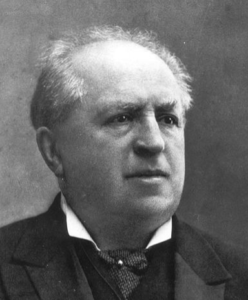Janie and Charlotte continue our discussions from opposite sides of the political spectrum–but we’re doing it politely! In this one we get philosophical.

Janie: Some classic Christian traditions teach that from the beginning God ordained three organizational entities: the family, the civil government, and the church. These three have their separate spheres of influence, which are distinct even though they overlap. The family is not just a basic economic unit but a home (for raising responsible adults and providing companionship and care to individuals). The church is not just a fellowship of believers but a prophet and moral conscience to society. And the government is not just the enforcer of social order and law but guarantor of national security—if only it would!
When one sphere tries to take over the purview of the others, trouble always follows. When a family becomes law unto itself, you get oppressive cults like David Koresh and Jim Jones (remember them)? When a church takes over civil functions you get the Inquisition. And when the civil government assumes family functions you get widespread dependency and a welfare state that looks like The Blob. Or totalitarianism.
Those distinctions aren’t always cut and dried, and I’m not saying civil authority has no part whatsoever to play in helping people. But the essential power of government is coercive. That’s what Paul means in Romans 13:4: “He [the governor] does not bear the sword in vain.” Government exists to stop corruption, police neighborhoods, throw crooks in jail, defend against attack; “to punish those who do evil and praise those who do good” (I Pet. 2:14). Praising, encouraging, or rewarding good behavior is a legitimate function; enforcing good behavior is problematic.
Government by nature is impersonal and (at its best) impartial, and the larger it gets the more impersonal. But we’ve come to think of the United States Government as a kind of extended family, which must take over family functions when necessary. It’s also a kind of church, which must correct false doctrine when necessary. Your reference to the federal government as a “wise parent” in our last discussion implies something like this. Thus it imposes on the responsibilities of the other two God-ordained spheres, one organic and the other moral and spiritual. And we got trouble, my friends.
I think the federal government has actually done more to break down community than build it up. Here’s how: when parents die or fail to meet their responsibilities, extended family members have traditionally stepped in to fill gaps. When a house in the neighborhood burns down, neighbors have traditionally pitched in to help rebuild. Churches have performed heroically in supporting widows, feeding orphans, building schools and hospitals, and voluntary organizations have formed to provide other needs like scholarship and benevolence funds. All these functions build community because they are horizontal—people reaching out to people—with strings attached. Local or church-based charity often comes with some sort of obligation to the receiver—that she take a life-skills class and get a job, for instance.
Those strings represent connectedness. With the introduction of federal aid, those horizontal bonds break down; rather than reaching out, people are reaching up. Rather than forming a network of mutual obligations the strings are all connected to a faceless bureaucracy that sends the checks. You don’t have to sheepishly confess to Uncle Mike that you drank up that loan he extended on your next paycheck—you don’t even have to worry that much about the next paycheck, because that pittance from Uncle Sam will come regardless. I’ve had personal experience with this attitude; it’s not something I read in National Review.
I think anyone would agree that there’s been a widespread breakdown of families and neighborhoods in the last fifty years. I don’t blame government aid for all of this, and I don’t deny there should be a safety net. But the safety net has become wider and wider as our meaningful personal connections get thinner. The expansion of welfare from The Great Society has not produced a great society, and I don’t see any likelihood that it will.

Charlotte: I can agree with much of what you say. We share concerns about the breakdown of American families, the cycles of poverty and the effectiveness of welfare. We both see fracturing within too many personal relationships and the subsequent isolation away from healthy community. The reasons for our social ills are deeply complex and the burden of responsibility must be shared by all of us.
But I disagree with your fundamental understanding of church and government. Our topic today is government but we do want to get to a discussion about how religion and politics might appropriately intersect in America so I’ll wait to talk about my own understanding of what “church” is to be. Here are some of my thoughts about what “government” is to be within the American context.
You say: “..the federal government has actually done more to break down community than build it up…” I say community breaks down because of our human brokenness and government should act as a kind of check on our natural self-centeredness. Of course the idealistic Great Society did not produce an actual great society but that doesn’t mean the efforts failed. Lots of people had work and food and homes because of that critical safety net during those hard years. And we made a national shift in some of our understandings about how government can properly function to “promote the common welfare.” But no human institution or program will ever produce perfection. We can only work towards it and try to keep making things better.
I used the metaphor of government as a “strong wise parent” in an earlier discussion because I am arguing that our society functions as a kind of far-flung, eclectic family. This metaphor is not my own creation; the mythology is deeply embedded within our story. We speak of George Washington as the “father” of our country. We send our “sons” off to war. We still celebrate the “Daughters of the American Revolution.” This is our “homeland” and “Uncle Sam” models for us what we are about as a people together.
I don’t think of government as the extended family as you imply. Rather We the People are the family, and government – in its appropriate role – ensures that the “family” values we claim in our founding documents are actual practices that we all share. And not just in our Constitution; but also in the traditions we have come to cherish. For example, hospitality to others seeking refuge, asylum and opportunity. Immigrants are people who become part of our family and government (as a strong wise parent) makes sure the table is big enough and we all make room for one another.
Have you read George Lakoff at all? He’s a cognitive scientist who has been offering insights for years now on how we relate to one another in our political system, and he is one who has been informing and expanding my understandings lately. Lakoff looks at the ways Conservatives and Progressives see the role of government and uses parental images to help us recognize how we make meaning of our relationship to government and to one another. Conservatives, he says, see government as a “strict father” while Progressives see it as a “nurturing parent.”
Much of what I hear Conservatives say makes sense within this “strict father” frame: actions have consequences; strength is better than vulnerability; traditional morality and national patriotism are high values; obedience is moral and disobedience is immoral. Don’t hear me knocking these values; I agree up to a point but as a Progressive, I find myself valuing other things more. Like equal opportunity, compassion and second chances. I hear Conservatives say government should leave them alone and let them tend to their own business without interference. I hear Progressives say government should leave them alone and stay out of our bedrooms and doctors’ offices. Both are right, in my view. A strong wise parent launches strong wise children who can make their own decisions. But since we humans (children and citizens) don’t always make wise decisions, there still must be some protections and safe guards that government should have in place.
So I do see America as a community, a family forced into relationship by virtue of our shared society and geography. And I think the various governments of America are responsible for nurturing our civic relationships in ways that are compassionate and equitable. That means honoring those who are strong and successful; celebrating their gifts and advantages. But also, at the same time, in appropriate balance, honoring and protecting those who are weak and disadvantaged; celebrating their inherent human dignity and finding ways to level the American playing field so they too have a shot at the American Dream.
Two things going on in this discussion: 1) who are we together as Americans? And 2) what is government and what is the people’s relationship to government?
A caveat, however; since America is a representative democracy, “We the People” choose people to represent us and govern in our stead with our approval. So in a very real way, WE are the government. Bureaucracies may be impersonal but governments and public servants should be lively and responsive to real people and real needs.
You say: The church is not just a fellowship of believers but a prophet and moral conscience to society. Please talk more about this. Is this how you understand the proper relationship between faith and politics, between church and state, between the religious and the secular? Thanks for this conversation; this is helpful for me.
Janie: A few responses before I answer that question:
- Of course civil government has a role as moral arbiter. Its function is making and upholding the law, after all, and law should have a moral base (even if it doesn’t always). I don’t disagree that government can act as a check on our natural self-centeredness, but governments are made up of broken individuals with their own self-centeredness. We agree that society and government are not the same, but I notice that progressives sometimes speak of them interchangeably. What does government have that society doesn’t? Authority. Sometimes governments have to force people to behave better, if they’re stealing or mugging or neglecting their kids or otherwise behaving badly.
- But you cannot force people to be compassionate. I believe Americans are basically generous and don’t mind contributing tax money to provide a safety net for those who truly can’t take care of themselves. However, the more government sets itself up as a social cop, determining who gets what and who has to pay for it, the more resentment will be created on one side and a sense of entitlement on the other.
- Governments can’t nurture; only people can do that. To the extent that there are compassionate individuals within an agency who can make a personal commitment to those they serve (and I know there are some of those), well and good. But that’s not primarily how an agency operates, nor can it. Government agencies are not primarily about people, they are about money: getting it, appropriating it, allocating it, doling it out, and keeping track of it with endless paperwork. Even if that wasn’t the intention going in, that’s what it becomes.
- Yes, we elect our representatives. What’s happened in the last 50 years or so, however, is the growth of a vast, overlapping array of agencies and initiatives and programs and staffers, none of whom are elected and all of whom tend to be permanent. They are accountable to no one and, as time goes on, many of these agencies become more about perpetuating themselves than meeting the needs they were originally created to serve. Many, if not most, of these employees have good intentions, but ask them how much time they have to get personally involved with their clients.
- You’re talking about admirable principles; I’m saying they don’t work so well in practice. Government solutions should be evaluated like any other solution, and they almost never are. No program is ever eliminated, regardless of how lousy it turns out (and yeah, they all do some good, but at tremendous cost and often with unintended consequences). Some programs, I believe, have done actual harm, and they all tend to become politicized.
- Finally, government is necessary, but it’s made of broken people. Government must “bear the sword,” as I mentioned before, but the bigger the sword, the greater the potential for abuse.
That’s where the church comes in. Jesus said, “My kingdom is not of this world,” meaning he didn’t come to set up a theocracy. Still, the church has a voice, and she is supposed to use it. “You are the salt of the earth.” I believe every Christian is called to be the not only the hands of Christ (serving others) but also the voice of Christ (speaking truth in love).
If a Christian is elected president, he or she must operate within the law, while at the same time using the bully pulpit to do good wherever possible. This may mean operating within constitutional limits to withdraw federal funds from Planned Parenthood, or working diplomatically to relieve persecuted Christians in other countries, or lobbying for laws that encourage marriage, or sometimes, in rare cases, even going to war.
Individual Christians in government can do these things; the church as a body can’t do any of these things, because they are the prerogative of government. Still, the church can and should be visible “salt and light” within a society. Individual Christians are not called to violently protest, but to live peaceful lives and do good. They are not called to stage political revolutions, but to work within the system to push back on government actions they consider unjust or ungodly. They are not called to disobey the law, except in extraordinary situations where “We must obey God rather than men.” The church as a whole is called to reach out, help meet needs, set a godly example, and speak out when necessary. I’m thankful we live under a government that allows us the freedom to do this, at least so far.
Charlotte: Oh my, Janie! I hardly know where to begin. In some ways we see many things similarly but in many other ways, we have fundamentally different visions.
You seem to be using the words “government” and “bureaucracy” as synonyms. You say: “government by nature is impersonal and (at its best) impartial…” I can see why you say that, given your paradigm.
But in contrast, when I speak of “government” I am talking about the people who do the work of governing within the framework of our guiding documents. In this understanding, the persons who govern should not be impersonal but must act with wisdom and compassion on behalf of the persons within their area of responsibility. In this understanding, the “government” should not be impartial but rather must work to protect the poor and the vulnerable from the rich and the powerful.
You argue that government per se is “God ordained.” I will agree with that but I can only understand what it means based on theological reflection of God’s own way of governing creation. What do the ancient stories and psalms say about God’s stewardship of the earth: its people, its creatures, its water and lands? What do the ancient rules within Israel’s national life say about equity, caring for the poor, and welcoming the stranger? What do the prophets say about governmental leaders, “Shepherds,” who plunder the flock, who abuse the widows and orphans, who make themselves rich at the expense of the poor? I think these are the biblical insights into “God-ordained government” that should best inform a Christian’s understanding even in our own day.
I confess your description of a “Christian president doing good wherever possible” startled me. You will actually claim that defunding health care for poor women is “doing good?” I think you are probably talking about abortion, but Planned Parenthood has played an active role in increasing contraception and family planning so that the abortion rates have dropped dramatically in the past few years. (Federal monies are not used to fund abortions.) How on earth can a pro-life, “Christian” lawmaker justify defunding an organization that promotes life and health in such a variety of ways?
And as I recall, our last Christian president did lobby for laws that encourage marriage; marriage equality – and the Conservative community was up in arms. You speak as if there is only one way to be “Christian.”
“The Church” in America has a long proud history of challenging government prophetically. The Christian community (across several denominations) worked to abolish slavery, to ensure civil rights for people of color, to protect children who were basically enslaved in factories and warehouses. Today many churches and congregations offer sanctuary for immigrants, protecting families from harsh and unforgiving governmental policies. In my understanding, these are appropriate ways Christians can be “the hands and the voice” of the Christ for our world.
We promised to engage in this dialogue with an honest effort to hear each other out, not to try to change each other’s minds. I’m glad for that commitment because we sure do see some things differently, don’t we? How do you think we need to continue this conversation next time? Is it time to get back to a discussion on health care in America?
Janie: Thanks for hearing me out. By “impartial,” I mean that government should not favor either rich or poor, but protect both. It’s not a crime to grow rich and spend your money as you see fit in this country, but there have been times in our history when our government aided and abetted the rich. That had to be corrected, and I’m sure it will still need to be corrected, because the rich tend to be the powerful. And the powerful will always, always, always have an outsized place in government, whether Democratic or Republican. In fact, the bigger the government, the more clout they will have. My point is that that the apparatus is too big, too costly, too awkward, too impersonal—and yes, governments are always bureaucratic. How could they not be? I still think I’m talking about things as they are, and you’re talking about things as they should be.
Speaking of things as they are (sigh), it looks like the ACA is here to stay, until we get a single-payer system. Pros and cons?










 Is it a coincidence that so many fairy tales and traditional stories in the western tradition end with a wedding? But they never continue with a marriage, beyond “and they lived happily ever after.”
Is it a coincidence that so many fairy tales and traditional stories in the western tradition end with a wedding? But they never continue with a marriage, beyond “and they lived happily ever after.”






